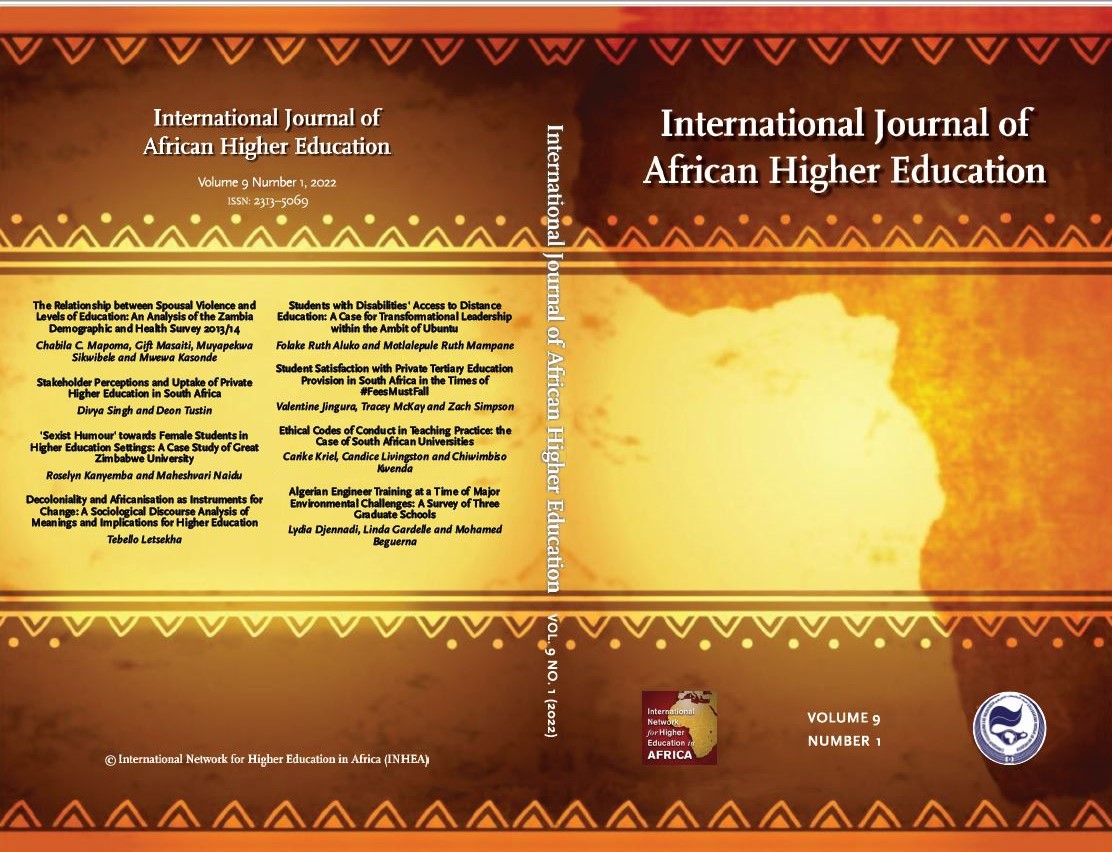‘Sexist Humour’ towards Female Students in Higher Education Settings
A Case Study of Great Zimbabwe University Roselyn Kanyemba
DOI:
https://doi.org/10.6017/ijahe.v9i1.15233Abstract
Sexism and sexual harassment in educational settings have rightfully gained much attention from researchers. Explicit harassment has seemingly been restrained through the introduction of policies criminalising these acts, but latent or less discernible harassment still occurs through channels such as sexist humour. This study sampled 20 female and ten male students at a university in Zimbabwe. Through interviews and focus group discussions, it explored how gender intersects with ‘culture’, manifesting in sexist humour, and how this contributes to campuses being hostile to females. Grounded on Bourdieu’s theory of practice, the study explored issues of power and powerlessness and the invisible power that underlies sexist humour in education settings. It revealed that females in higher education settings are often subjects of gender ideology and stereotyping where female submission is emphasised, as evidenced by the kind of sexist humour that prevails. The study concluded that sexist language use is related to a particular kind of hegemonic masculinity that condones verbal violence against female students.
Key words: Misogyny, sexist humour, patriarchy, harassment, gender
Downloads
Published
How to Cite
Issue
Section
License
Copyright (c) 2022 Roselyn Kanyemba, Maheshvari Naidu Naidu

This work is licensed under a Creative Commons Attribution-NonCommercial-NoDerivatives 4.0 International License.

